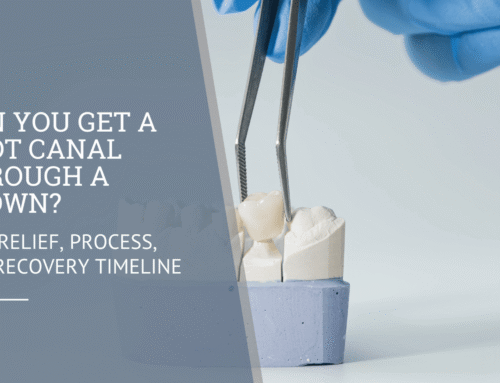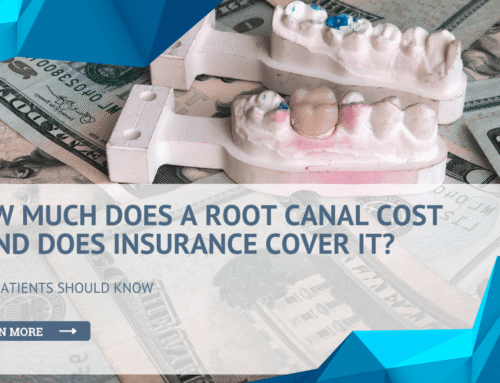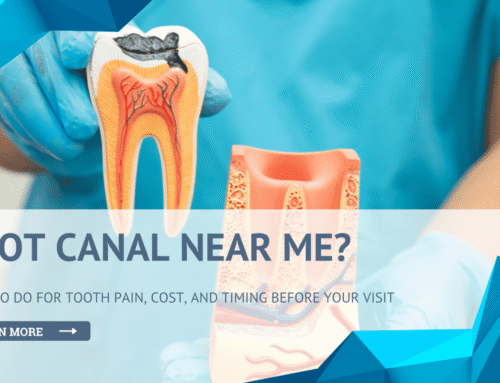You’ve made it through your root canal—whew! But now comes the next question:
“Do I need a crown, or am I good to go?”
It’s one of the most common things we’re asked after treatment. The answer? It depends on the tooth.
Let’s break down when a crown is necessary, when it might not be, and why it matters for your long-term oral health.
Why Do Root Canals Need Crowns in the First Place?
A root canal removes the infected or damaged pulp inside a tooth. While this clears the problem, it also leaves the tooth more fragile than before.
Without the pulp, the tooth no longer receives blood flow or nutrients—it’s essentially preserved, but no longer “alive” in the traditional sense. That makes it:
-
More brittle
-
More prone to fractures
-
Less able to handle daily chewing and grinding forces
A dental crown acts like a protective shell, wrapping around the tooth to restore strength and structure. Think of it as a helmet for your tooth—it doesn’t change what’s inside, but it protects what matters.
When You Do Need a Crown After a Root Canal
Most patients will need a crown, especially if the treated tooth is in the back of the mouth. Here’s why:
✅ Molars and Premolars
These teeth handle the bulk of your chewing. Without the reinforcement of a crown, they’re much more likely to fracture or break after a root canal.
✅ Teeth With Large Fillings or Damage
If your tooth already had a big filling or visible decay, chances are it has weakened walls. A crown helps protect what’s left.
✅ Cosmetic Concerns
Sometimes, a crown is recommended to restore the appearance of a discolored or misshapen tooth after treatment.
When You Might Not Need a Crown
Not every root canal ends with a crown. In some cases, a permanent filling (also called a core build-up) may be all that’s needed.
✅ Front Teeth (Incisors and Canines)
These teeth don’t take the same chewing force as molars. If the structure is still solid, a filling may be enough to restore function.
✅ Minimal Decay or Trauma
If your tooth is in excellent shape aside from the internal infection, a crown may be optional.
That said, your endodontist and your general dentist will evaluate your tooth’s condition, function, and bite forces before making a recommendation.
How Soon Do I Need the Crown?
If a crown is recommended, it’s important to get it sooner rather than later—typically within 1–2 weeks after your root canal.
Why? Because the longer you wait:
-
The more risk of fracture (especially when chewing)
-
The more likely bacteria can sneak back in if a temporary material wears down
Don’t worry—we’ll guide you through scheduling and work with your general dentist to make sure everything happens on time.
Temporary vs. Permanent Crowns
After your root canal, you may leave the office with a temporary filling or temporary crown, depending on the case. These aren’t built to last—but they’ll protect your tooth for a short time until your permanent restoration is placed.
A permanent crown is custom-made for your tooth using durable materials like porcelain or zirconia, designed to blend in naturally and last for years.
What Happens If I Skip the Crown?
Let’s put it this way: You can skip the crown, but you’re rolling the dice.
Here’s what might happen:
-
The tooth fractures, possibly below the gumline (which can lead to extraction)
-
Bacteria re-enter and cause reinfection
-
The root canal fails, and you may need retreatment or removal
Long story short? If your provider recommends a crown, it’s not upselling—it’s preserving your investment in that root canal.
How to Know What’s Right for You
Every tooth is different, and every mouth is different. That’s why your care team looks at:
-
Tooth location
-
How much tooth structure is left
-
Your bite pressure and habits (like grinding or clenching)
-
Your goals—both functionally and cosmetically
We’re here to help you understand your options, not pressure you into treatment. Our goal is always to keep your smile healthy, strong, and lasting.
Conclusion
If you’ve just had a root canal, congratulations! You’ve already taken a huge step toward protecting your smile.
Whether you need a crown afterward depends on your unique case—but most of the time, it’s the smartest way to protect your tooth for the long haul.
If you’re unsure, we’re here to talk it through and help you make the best decision for your dental health. Because your peace of mind matters just as much as your pearly whites.
FAQs – After a Root Canal
1. Do all root canals require a crown?
Nope—but most molars and premolars do. Front teeth may only need a filling if they’re in good shape.
2. How long can I go without a crown after a root canal?
It’s best to get one within 1–2 weeks. Delaying increases your risk of fracture or reinfection.
3. What happens if I don’t get a crown?
You risk the tooth breaking or failing, which could lead to extraction and more expensive treatments later.
4. Are crowns covered by insurance?
Many dental plans cover part of the crown cost. We can check your benefits and give you a cost estimate.
5. Will the crown match my other teeth?
Absolutely! Today’s crowns are color-matched and shaped to blend in beautifully.




